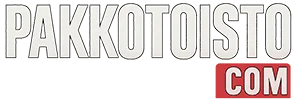Wintikka sanoi:
Soijan puolesta ja vastaan löytyy tutkimuksia, mutta en ainakaan itse menettäisi yöuniani soijan syömisen takia.
Journal of Nutrition (lyhyt pätkä):
Hormonal effects of soy in men
The few studies of hormonal effects of soy consumption in men have addressed potential adverse as well as beneficial effects (Table 3 ). There has been some concern that the recently observed decline in sperm quality may be related to exposure to environmental estrogens (24 ), and at the same time there has been speculation that these estrogenic compounds may exert inhibitory effects against prostate cancer.
Theoretically, exposure to high levels of dietary estrogens could alter the hypothalamic-pituitary-gonadal axis in men in a similar manner to that of diethylstilbestrol (25 ). Neonatal injections of very high doses of genistein in rodents altered the pituitary response to gonadotropin-releasing hormone (26 ) and induced structural changes similar to those induced by diethylstilbestrol (27 ). In adult mice, subcutaneous exposure to very high levels of genistein resulted in decreased serum and testicular testosterone and pituitary luteinizing hormone concentrations, and decreased prostate weight (27 ). In contrast, dietary studies performed in rats for the most part have not shown these same hormonal effects. Rats consuming genistein neonatally did not show altered testosterone levels, sperm count or gonad histopathology (28 ), and prenatal plus neonatal exposure did not show consistent effects on testosterone, luteinizing hormone or sperm count (29 ).
Only one study directly evaluated semen and testicular endpoints in men consuming soy phytoestrogens. Mitchell et al. (30 ) reported a study of 14 young men (18–35 y old) who consumed 40 mg/d of soy isoflavones (in a tablet form) for 2 mo. The subjects were followed for 2 mo before and 3 mo after taking the supplement. The isoflavone supplement had no effects on testicular or ejaculate volume or sperm concentration, count or motility. These results suggest that soy isoflavones do not affect sperm quality when consumed at a dose of 40 mg/d by young adult men. The authors point out that these results do not exclude the possibility of adverse effects from exposure during development or consumption of a higher dose or for a longer period of time.
A number of in vitro (31 ,32 ), animal (33 ) and epidemiological (34 ) studies have suggested that soy consumption may reduce prostate cancer risk. Because prostate cancer is believed to depend on reproductive hormones (35 ,36 ), it has been suggested that soy consumption may reduce prostate cancer risk in part by altering endogenous hormones concentrations. Only four studies have reported the effects of soy consumption on reproductive hormones in men.
Nagata et al. (37 ) performed a cross-sectional analysis of the relationship between soy product intake and reproductive hormones in 69 Japanese men with a mean age of 60.5 y. Average isoflavone intake was estimated by dietary questionnaire to be 22 mg/d, although the authors point out that diet records estimated soy intake to be 40% higher. After age, body mass index, smoking status and ethanol intake were controlled for, inverse correlations were seen between soyfood consumption and serum concentrations of estradiol (r = -0.32, P = 0.009). Borderline significant associations were seen between soyfood consumption and serum concentrations of estrone (r = -0.24, P = 0.05), total testosterone (r = -0.25, P = 0.05), and free testosterone (r = -0.25, P = 0.06).
Three dietary intervention studies have reported the effects of soy or soy phytoestrogen consumption on reproductive hormones in men. Habito et al. (38 ) performed a randomized crossover study of 42 men with a mean age of 45.7 y who consumed 150 g lean meat or 290 g tofu (containing 70 mg isoflavones) daily for 4 wk. Blood concentrations of estradiol, testosterone, dihydrotestosterone and androstanediol glucuronide did not differ between the two diets. The mean testosterone-estradiol ratio was 10% lower (P = 0.05), SHBG was 9% higher (P = 0.01), and the free androgen index (total testosterone/SHBG x 100) was 7% lower (P = 0.06) after tofu consumption. This slight reduction in androgen activity was not confirmed by Nagata et al. (39 ), who reported a parallel-arm study of 34 men with a mean age of 32.4 y, one-half of whom consumed an average of 343 mL soymilk (containing 48 mg isoflavones) daily for 2 mo. Blood concentrations of estradiol, total and free testosterone, and SHBG did not differ between the two groups, although estrone concentrations tended to decrease in the group consuming soymilk. These results are generally consistent with those of Mitchell et al. (30 ), who found no changes in serum concentrations of estradiol, testosterone, follicle-stimulating hormone or luteinizing hormone in men consuming a tablet containing 40 mg/d of soy isoflavones.
These four studies performed in adult men suggest that there are no adverse effects of soy isoflavone consumption on sperm quality, although there may be small effects of soy consumption on SHBG and steroid hormones. Note that none of these studies evaluated the prostate itself, and it is possible that soy consumption alters local hormone metabolism and action within the gland.




